 |
| Patients come for examination and treatment at Dong Da General Hospital ( Hanoi ). Photo: Duong Ngoc/VNA |
In the above Resolution, the Government unanimously assessed: In recent years, the Party and the State have had policies and a number of mechanisms and policies to encourage socialization of public service activities to achieve the goal of expanding and attracting resources and investment potential in society and improving the quality and quantity of public service types. To encourage social investment in establishing facilities providing public service, the Government issued Decree No. 69/2008/ND-CP dated May 30, 2008 on policies to encourage socialization of activities in the fields of education , health, culture, sports and environment. In 2014, the Government issued Decree No. 59/2014/ND-CP dated June 16, 2014 amending and supplementing a number of articles of Decree No. 69/2008/ND-CP.
Up to now, the system of legal documents on policies to encourage socialization, on criteria for scale and standards of socialized establishments in the field of public service has been issued relatively fully. Provinces and centrally-run cities have also paid attention to implementing policies to encourage socialization; some localities have issued specific preferential policies to encourage and improve the quality of operations of socialized establishments in accordance with local practical conditions.
The results of implementing policies to encourage socialization have shown to have brought about many positive aspects such as: Initially changing the awareness of society in using public career services provided by non-public career units; contributing to expanding the network, attracting domestic and foreign investment capital sources to participate in developing public career services; diversifying the types, methods of operation and service products in the fields of public career services, creating competition, developing techniques, promoting quality improvement, contributing to reducing pressure and overload in providing career services of public career units.
At the same time, gradually meet a part of the demand for high-quality services of a segment of the population; encourage public service establishments to be proactive and creative in attracting social investment capital through capital mobilization, joint ventures and associations to expand and improve service quality and contribute to increasing income for officers and employees of the unit; contribute to reducing dependence on the state budget in providing public service.
However, the implementation process still has some shortcomings and limitations, such as: The issuance of specific implementation guidance documents by sectoral and sectoral management ministries and localities is not complete, synchronous and in line with the development situation; the level of socialization in public service sectors is uneven, often concentrated in a number of sectors and types that are easy to make a profit and concentrated in areas with developed socio-economic conditions.
The Resolution clearly states: Currently, preferential policies on tax, land and credit for establishments implementing socialization have been prescribed with the highest preferential levels in the Tax Law, Land Law and the Government's Decree on credit policy. Accordingly, to ensure the implementation of preferential policies to encourage socialization of public service provision in a synchronous, public and transparent manner, avoiding policy abuse, it is necessary to specifically prescribe preferential policies in the Laws: Land Law, Tax Law and the Government's Decree guiding specialized Laws to ensure consistency in the legal system. Implementing the program of drafting legal documents of the 15th National Assembly, the Government is submitting to the National Assembly a project to amend the Tax Laws and draft Decrees detailing the Land Law. Therefore, in the current period, the Government has agreed not to issue a Decree amending and supplementing Decree No. 69/2008/ND-CP and Decree No. 59/2014/ND-CP on policies to encourage socialization.
To overcome the shortcomings and inadequacies in socialization work and continue to attract and expand investment resources in society, creating conditions for public service activities to develop with higher quantity and quality, and at the same time restructure the state budget, the Government requires ministries, agencies and localities to seriously and urgently focus on effectively, substantially and comprehensively implementing the tasks and solutions set out in Resolution No. 19/NQ-TW dated October 25, 2017 of the 12th Party Central Committee on continuing to innovate the organization and management system, improving the quality and efficiency of public service units; Resolution No. 08/NQ-CP dated January 24, 2018 of the Government on the Government's Action Program to implement Resolution No. 19/NQ-TW; Decision No. 2114/QD-TTg dated December 16, 2021 of the Prime Minister promulgating the Plan to implement Conclusion No. 19-KL/TW of the Politburo on the Project on Orientation of the Law-making Program for the 15th National Assembly term, focusing on a number of main contents: Perfecting preferential policies to encourage the socialization of public service provision: The Government requests ministries, central and local agencies to continue to effectively implement preferential policies on land, taxes, fees, credit, etc. on the basis of compliance with the provisions of the law on land, taxes, public investment, state budget, state credit and other relevant legal documents; Continue to review preferential policies to encourage socialization and socialized fields to promptly submit to competent authorities for amendments and supplements to ensure consistency with emerging realities, create favorable conditions to support non-public units and investors to participate in investment, and improve the quality of public career services.
Specifically, ministries and branches, according to their functions and management fields, shall summarize, evaluate and review preferential policies and incentives for the socialized sector and have written documents proposing additional preferential policies to promote the socialization of public career services, including supplementing and researching separate regulations on incentives for exemption and reduction of land rents other than the incentives for investment projects in investment incentive sectors and areas specified in Point a, Clause 1, Article 157 of the 2024 Land Law, and send them to the Ministry of Finance for synthesis and reporting to competent authorities for consideration and decision.
The Ministry of Finance studies and synthesizes the proposed policies and solutions to report to competent authorities in the process of amending and supplementing tax laws. Regarding the content of incentives for exemption and reduction of land rent, the Ministry of Finance synthesizes and submits to the Government for regulations after reporting and asking for opinions from the National Assembly Standing Committee in accordance with the provisions of Clause 2, Article 157 of the 2024 Land Law. The completion time is according to the National Assembly's Law and Ordinance Development Program and the Government's Decree Development Program.
The Government assigned the Ministry of Natural Resources and Environment to preside over and coordinate with relevant ministries and branches to develop preferential land policies in the Decrees detailing the Land Law accordingly.
The Government assigned ministries in charge of sectors and fields and People's Committees of provinces and centrally run cities to review, amend and simplify administrative procedures related to the establishment of non-public establishments, land allocation, site clearance support, etc. to create favorable conditions for non-public public service providers to be established and operate effectively; ensure that no new or more complicated administrative procedures are created; strengthen international cooperation, take advantage of aid sources to promote the socialization of the provision of education, health, science and technology services; have policies to encourage and attract intellectuals and overseas Vietnamese to return to the country to participate in teaching, scientific research, medical examination and treatment, cultural activities, sports competitions, etc.; review and amend mechanisms and policies so that the private sector is equal to state-owned enterprises and units in accessing resources in the market.
Regarding the criteria for scale and standards of socialized facilities, the Government assigned the Ministry of Education and Training to research and absorb the opinions of the State Audit in Document No. 610/KTNN-TH dated October 17, 2022, and urgently submit to the Prime Minister to amend and supplement the regulations on the list of criteria for scale and standards of socialized facilities in the field of higher education to ensure consistency with reality.
The Government assigned ministries in charge of sectors and fields to review specific regulations on the list of criteria for scale and standards of socialized facilities to propose timely amendments and supplements, especially the criteria on land use area and scale of operations to ensure compliance with specialized legal documents (such as the maximum ratio of students/tenured lecturers, the maximum number of children/1 nursery class; hospital bed size; museum artifacts, etc.); at the same time, coordinate with the agencies in charge of drafting Law projects and Decrees guiding preferential policies for socialization (Ministry of Finance, Ministry of Natural Resources and Environment, etc.) to include the contents of regulations on principles of criteria for scale and standards of socialized facilities in specialized laws or specialized guiding Decrees of Law projects when promulgated, in accordance with the characteristics of the fields and with sufficient legal basis for implementation.
Regarding the list and roadmap for calculating prices for public career services, the Government assigned ministries managing sectors and fields and localities to review, complete and submit to competent authorities to promulgate lists of public career services using the state budget according to the following principles: The State ensures funding for essential services, supports funding for basic services; other public services not using state budget funds, determine prices according to market mechanisms, units are allowed to decide on revenues, revenue levels to ensure reasonable cost compensation, with accumulation to attract investors from non-public economic sectors to participate in providing public career services; implement ordering or bidding mechanisms according to the provisions of law for services with specific characteristics of a number of sectors and fields to create conditions for non-public establishments to participate.
The Government assigned the Ministry of Education and Training, the Ministry of Health, the Ministry of Labor, War Invalids and Social Affairs, according to their assigned functions and fields, to preside over and coordinate with ministries, branches and localities to implement the roadmap for the market price mechanism under State management for prices of important public services such as healthcare, higher education, vocational education, etc. in accordance with the spirit of Resolution No. 19/NQ-TW dated October 25, 2017 of the 12th Party Central Committee on continuing to innovate the organization and management system, improve the quality and efficiency of public service units and the Law on Price Management; choose the level and time of adjustment to ensure limiting strong impacts on price levels and inflation, in order to improve the quantity and quality of public services, create a competitive business environment between public and non-public establishments; associated with appropriate support policies for the poor and policy beneficiaries.
Regarding the arrangement and reorganization of public service units and the completion of the mechanism to encourage socialization in public service units: The Government assigns ministries managing sectors and localities to develop or complete plans to arrange and reorganize public service units of each sector and field to report to the Prime Minister on the implementation plan according to the following principles: Promote the conversion of public service units to operate in the form of self-insurance of all operating costs (register specific targets for the number of converted units and implementation solutions based on the classification of the socialization capacity of public service units providing public service services), resolutely switch to a mechanism of full financial self-insurance for the group of public service units providing public service services with high socialization capacity on the basis of the State implementing a roadmap to ensure operating costs for a limited period. In case it is necessary to establish a new public service unit, that unit must fully ensure its finances (except in cases where it must be newly established to provide basic and essential public service units); promote socialization and transform eligible economic and other service units into joint stock companies.
The Government assigned the Ministry of Finance to preside over and coordinate with ministries and agencies to submit to the Government amendments and supplements to Decree No. 60/2021/ND-CP dated June 21, 2021 stipulating the financial autonomy mechanism of public service units.
Regarding inspection, supervision and reporting: The Government assigns ministries in charge of sectors and fields and localities to strengthen their responsibility in directing the implementation of the Party and State's policies and laws on the socialization of public service activities. Strengthen the inspection and supervision of the implementation of public service providers (including the implementation of socialization) to ensure the quality of public services; promptly handle problems and update and supplement policies and regimes to suit the reality; promptly make recommendations to the agencies in charge of preferential policies on socialization (land, credit, tax, etc.) to improve the law.
Source: https://baothuathienhue.vn/chinh-tri-xa-hoi/chua-sua-chinh-sach-khuyen-khich-xa-hoi-hoa-cac-dich-vu-su-nghiep-cong-142152.html


![[Photo] Solemn opening of the 8th Congress of the Central Public Security Party Committee, term 2025-2030](https://vphoto.vietnam.vn/thumb/1200x675/vietnam/resource/IMAGE/2025/10/4/f3b00fb779f44979809441a4dac5c7df)



![[Photo] Bustling Mid-Autumn Festival at the Museum of Ethnology](https://vphoto.vietnam.vn/thumb/1200x675/vietnam/resource/IMAGE/2025/10/4/da8d5927734d4ca58e3eced14bc435a3)


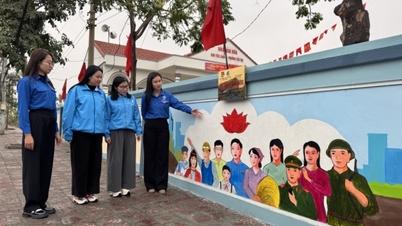







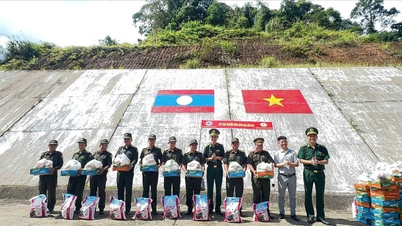
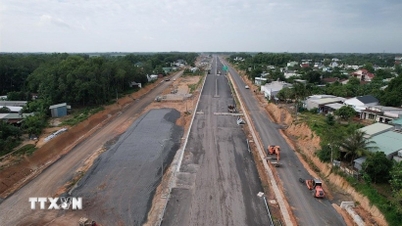
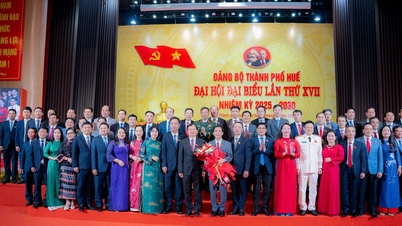







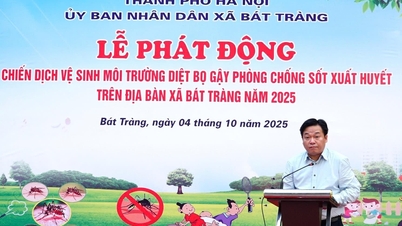

![[Photo] General Secretary To Lam attends the 8th Congress of the Central Public Security Party Committee](https://vphoto.vietnam.vn/thumb/1200x675/vietnam/resource/IMAGE/2025/10/4/79fadf490f674dc483794f2d955f6045)

























![[VIDEO] Summary of Petrovietnam's 50th Anniversary Ceremony](https://vphoto.vietnam.vn/thumb/402x226/vietnam/resource/IMAGE/2025/10/4/abe133bdb8114793a16d4fe3e5bd0f12)

![[VIDEO] GENERAL SECRETARY TO LAM AWARDS PETROVIETNAM 8 GOLDEN WORDS: "PIONEER - EXCELLENT - SUSTAINABLE - GLOBAL"](https://vphoto.vietnam.vn/thumb/402x226/vietnam/resource/IMAGE/2025/7/23/c2fdb48863e846cfa9fb8e6ea9cf44e7)





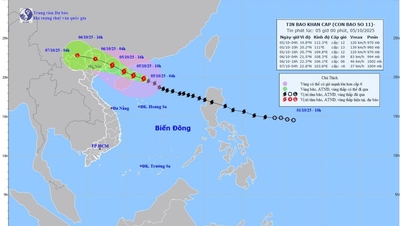















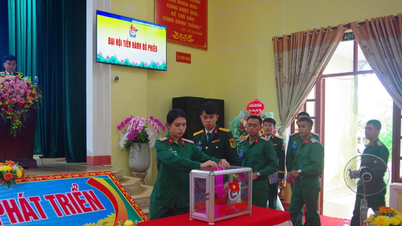
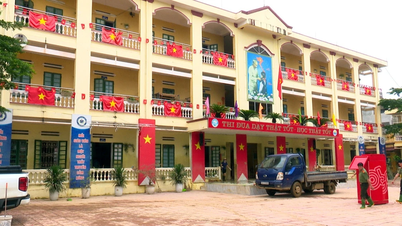

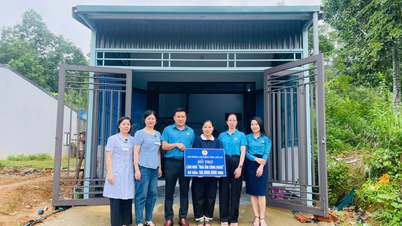












Comment (0)